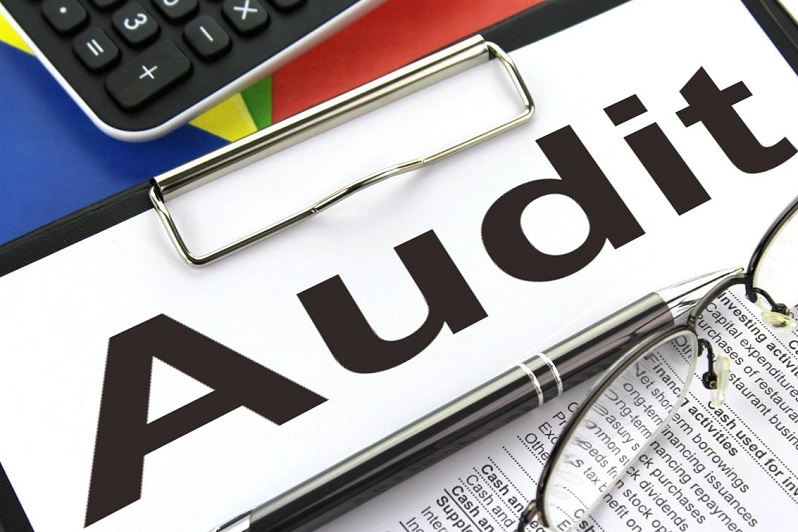External Audit in UAE
An Audit is a process of examining a company’s annual financial reports by an independent party certified to conduct the process to determine if the accounts prepared are accurately reflecting the company’s financial position. An external audit is conducted by an independent auditor examining, analyzing, and certifying the accuracy of the financial statements prepared by the company. Generally, this Audit report is required to be prepared for either statutory reasons, investors, or banking services. It is binding by law on all companies registered under the UAE Commercial Companies Law, to be audited annually. Further, even some Free Zone authorities have made it mandatory to submit the audit reports.
Working of External Audit and Auditing Firms in the UAE
The External Audit needs to be conducted by DMCC approved Audit Firms in Dubai. The Auditors in Dubai review the company accounts and prepare an Auditor’s report with an Auditor’s opinion formed. The role of the approved auditor is to ensure that the annual financial reports prepared by the company are accurate and are free from any deceit or error. They also ensure that the accounts are prepared according to the International Financial Reporting Standards. An external auditor must be professionally qualified and specialized in the field of Auditing. An external auditor can also be appointed by the government to go through and conduct an examination of the financials of a company if the government detects a case of fraud or misleading information.
The difference between Internal and External Audit
- An internal audit provides advice to the company on how to improve the financial conditions and reduce the risks involved in the business. Whereas, an external audit verifies and examines the accuracy of the company’s financial reports as per the law.
- Internal Auditors may be the employees of the company, while the external auditors are an independent third-party company.
- The internal auditors work towards advising the company on how to improve their financial standings; they do not follow a particular format to present their reports of the financial position of the company. However, an external auditor has to follow the format as prescribed by law and according to the auditing standards.
- An internal audit is usually not compulsory for organizations but highly prescribed to improve the performance of the company. Meanwhile, an external audit is made mandatory on the organizations as it is required by the government of the UAE.
- Internal audits can be carried out throughout the year. Whereas, the external audit is conducted annually.
Benefits of External Audit
- Validation – An external audit ascertains and certifies the validity and accuracy of the accounting reports prepared by the organization. This can protect the financial standing of the company and can help the organization from attaining additional finance.
- Credibility – By conducting an external audit in the company, it increases the credibility of the company. It ensures the public and authorities that the business is a verified and reliable organization in the market.
- Avoids Errors – Appointing an external auditor can be beneficial for the company, as they aim to limit any errors made during the preparation of the company’s accounts. If the company is aware of the errors, it can allow them to make competent decisions about the future of the business. It can also help the business owners to find out the fault of the errors and work towards eliminating them.
- Limits and prevents frauds – If a company ignores conducting external auditing in their business. It will accumulate various errors and misleading information prepared by the accountants of the company, which will result in cases of fraud and money laundering. An external auditor’s objective is to limit any such fraud in a company.
- Provides solutions and Unbiased recommendations – Receiving advice regarding the financial condition of the company from an external auditor is beneficial to the company as the advice is drawn from the information gathered during the auditing of the company. The external auditors are a team of experienced, qualified and approved auditors. The solutions and recommendations provided by them are unbiased and solely for the betterment of the company.
https://farahatco.com/blog/facts-know-fraud-auditing/
Preparation for an External Audit
The documents required by an auditor are:
- A general ledger and the company’s trial balance – Auditors require the ledger and trial balance in the initial stage of the auditing to examine and check the balances of the debit and credit.
- A list of bank accounts under the company’s name – Providing a list of bank accounts assists the auditors in preparing their auditing report.
- A record of the company’s payroll reports – This helps the auditors to be aware of the tax liabilities, expenses and wages in the company.
- Documents related to the company’s loans – This will help the auditor to accurately prepare the disclosure of payments.
- A list of the fixed assets purchased - It is necessary to include the invoices and receipts, to ensure the preparation of an accurate balance sheet and other required financial documents.
Auditing Firm in UAE
Auditing is a lengthy procedure for all companies. Farahat & Co. provides both internal and external auditing facilities in the UAE. They have experienced, qualified and DMCC approved auditors that can help make the process of auditing easier.


